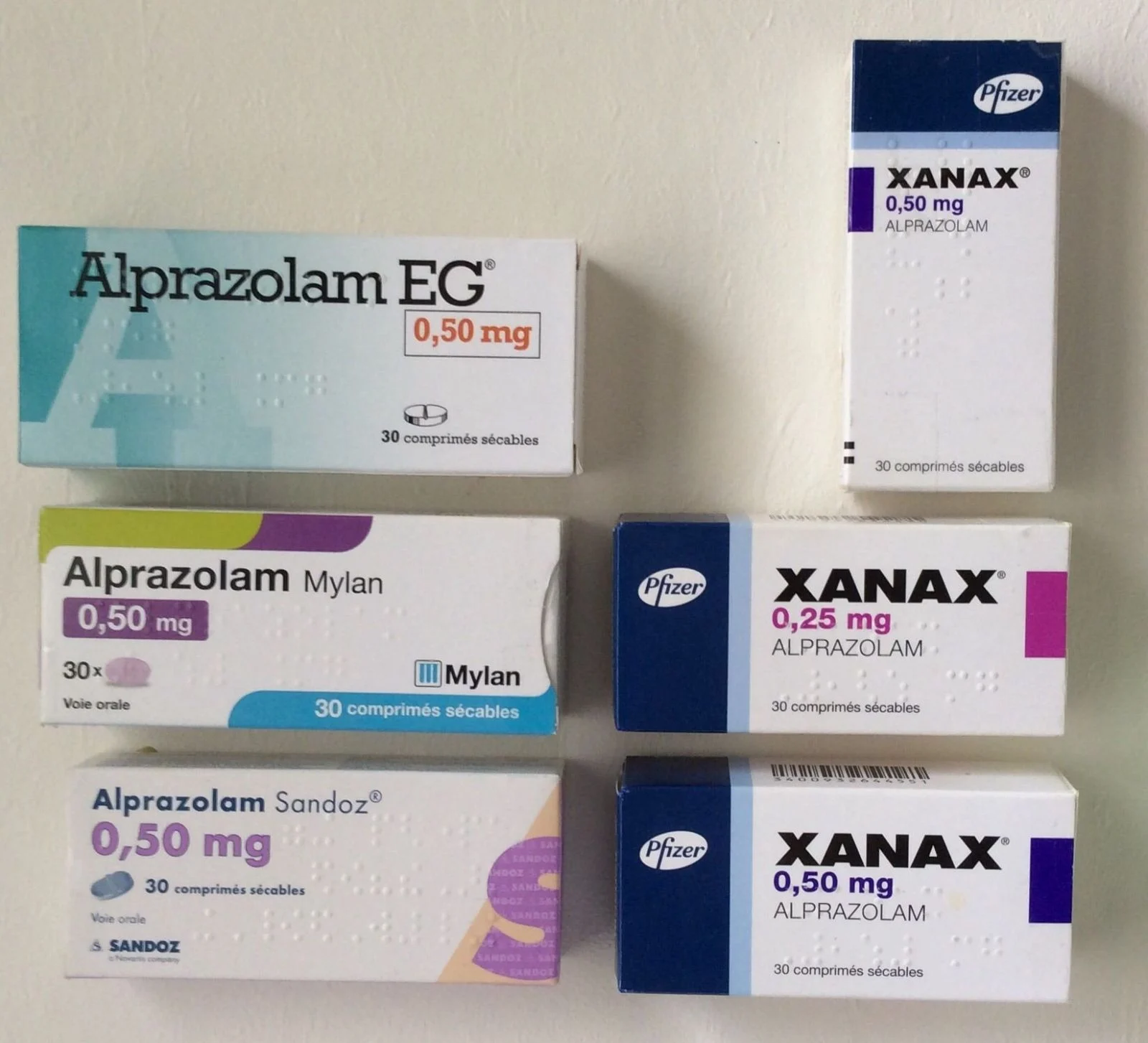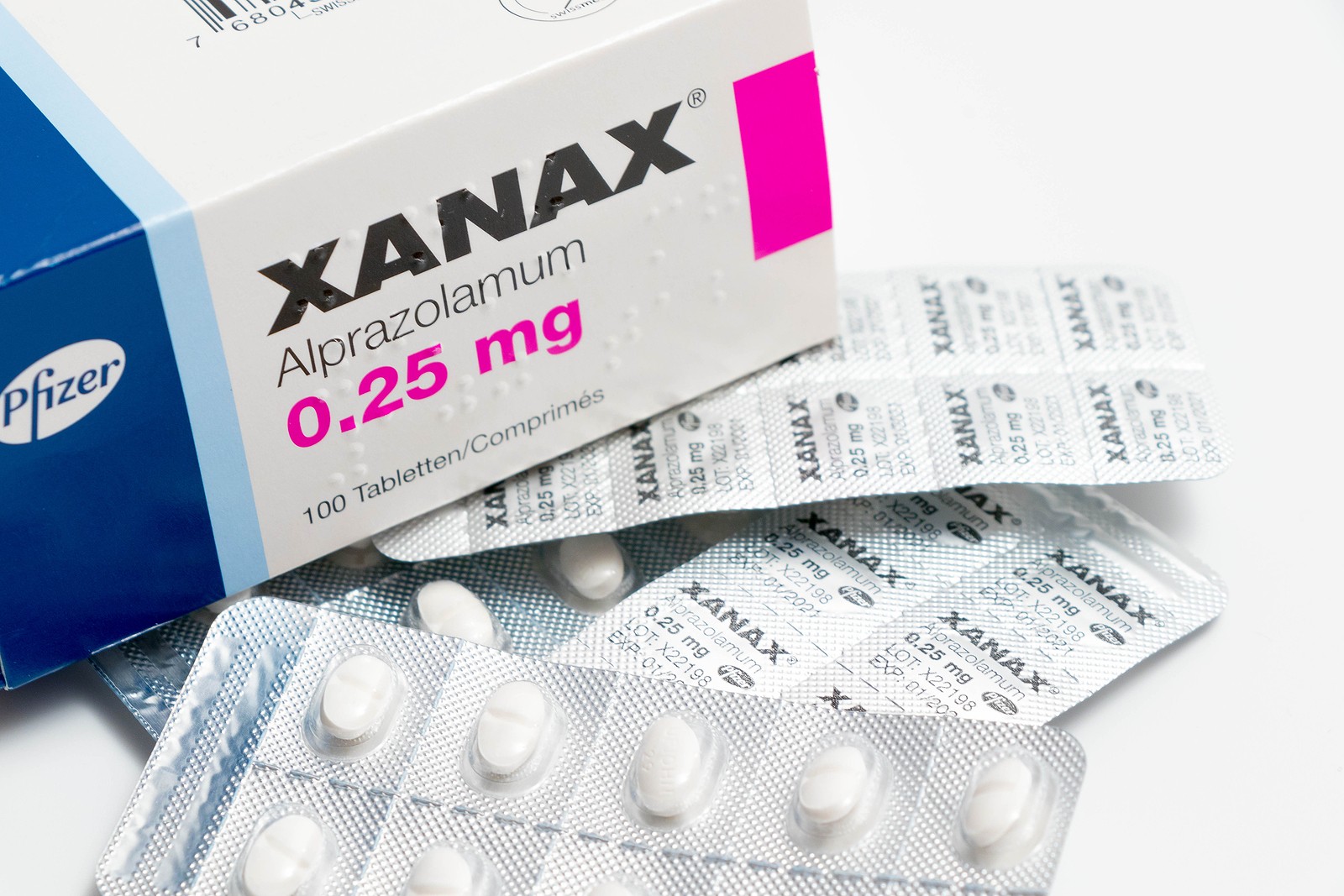Xanax, the brand name for the medication alprazolam, is often prescribed to manage symptoms of anxiety disorders. It works by decreasing abnormal excitement in the brain, offering relief to those battling persistent worry and tension.
However, those taking Xanax may have concerns beyond their mental health, particularly when it comes to the side effects related to weight. It’s a common question among users: does Xanax cause weight gain?
Understanding the effects of Xanax on weight is crucial since maintaining a healthy weight is an integral part of overall health.
While some individuals report an increase in appetite that could lead to weight gain, this is not a blanket rule for all.
Factors such as dosage, frequency of use, individual metabolism, and lifestyle all play significant roles.
Sudden changes in weight should be monitored closely, and medical attention should be sought if unexpected weight gain or loss occurs as it may indicate an underlying issue.
Reader's Roadmap
Key Takeaways
- Xanax may affect body weight in diverse ways, depending on various factors.
- Any significant weight changes while using Xanax warrant medical consultation.
- Weight management, when on Xanax, includes monitoring diet and activity levels.
Understanding Xanax and Its Uses

Before diving into the relationship between Xanax and weight changes, it’s essential to have a clear understanding of what Xanax is, its common applications, and how it interacts with the central nervous system.
What Is Xanax?
Xanax, scientifically known as alprazolam, is a medication belonging to the benzodiazepine class. These are sedative drugs designed to have a calming effect on the brain and body. They’re often recognized by their characteristic ability to relieve tension swiftly, making them quite popular in the medical community.
Common Uses for Xanax
This medication has earned its place in many medicine cabinets for its effectiveness in tackling conditions associated with anxiety and panic disorders.
One can appreciate the relief it provides to those who struggle with the abrupt waves of unease that can disrupt a person’s daily functionality.
How Xanax Affects the CNS
At the core of its operation, Xanax works by influencing the central nervous system (CNS). It enhances the effects of a natural chemical in the body called GABA, which is crucial for maintaining a balanced state.
By increasing GABA activity, Xanax helps lessen the intensity of anxiety symptoms, providing a sense of calm and relaxation to those who need it.
Potential Side Effects of Xanax
When considering Xanax, it’s important to be aware of its side effects. Its active ingredient, alprazolam, can influence the body in various ways, from mild discomfort to more serious health concerns.
Common Side Effects
Xanax, which belongs to the benzodiazepine family, often brings about drowsiness and sleepiness, which may seem manageable but can affect daily activities.
Some individuals might experience a sense of confusion or struggle with coordination.
It’s quite common to feel a bit out of it while on this medication – like operating in a dreamy, foggy state.
- Drowsiness
- Sleepiness
- Lack of coordination
- Confusion
Serious Side Effects
There are instances when Xanax can have more intense repercussions. Some people report feeling rage or engaging in aggressive behaviors, which can be quite alarming for them and those around them.
In rare cases, there could be seizures, especially if someone stops taking Xanax suddenly.
These serious side effects warrant immediate medical attention:
- Uncontrolled rage or aggression
- Seizures
Long-Term Health Risks
Long-term use of Xanax might lead to serious health risks, even when taken as prescribed.
Individuals may develop dependence, where their body craves the drug and they feel they can’t function without it.
This can lead to addiction, making it extremely hard to quit.
Withdrawal symptoms can be a significant stumbling block in overcoming dependence, and they come with their own set of challenges, like anxiety, tremors, and in severe cases, more seizures.
- Dependence and addiction
- Withdrawal symptoms upon cessation
- Possible increase in anxiety and tremors
The Relationship Between Xanax and Weight

Many people who take Xanax, a medication for anxiety, wonder about its effects on weight. Let’s take a closer look at what one might expect.
Does Xanax Cause Weight Gain?
Some individuals on Xanax have reported weight gain. While it’s not inherently a weight-gain drug, Xanax can lead to changes in appetite, which, in turn, may affect one’s weight.
For those who find their stress eating increases or their appetite goes up while on Xanax, gaining a few extra pounds is a possibility.
Weight Loss and Xanax
On the flip side, there’s also a chance of weight loss while taking Xanax. Research has observed cases where patients experience reduced appetite or increased metabolism.
Weight loss, if it occurs, may be due to these factors. Thus, while some may lose weight, others might not notice any significant weight change.
Managing Side Effects and Weight Changes
It’s common for those taking Xanax to experience changes in weight, whether it’s a gain or a loss. Navigating these changes involves understanding the side effects and how to adjust one’s lifestyle or when it’s important to seek professional guidance.
Lifestyle Adjustments
Weight changes can happen with Xanax use due to its impact on appetite and activity levels.
It’s important for individuals to monitor their weight and physical activity to mitigate any undesired changes. They should consider:
- Regular Exercise: Maintaining or starting a consistent exercise routine can counterbalance weight gain.
- Balanced Diet: Paying attention to nutrition, and ensuring a diet rich in fruits, vegetables, and whole grains, can help manage weight.
- Adequate Sleep: Since medication affecting the nervous system can disrupt sleep patterns, good sleep hygiene practices are important.
When to Seek Medical Help
If one notices significant weight changes or experiences severe side effects that affect daily life, it is crucial to seek medical attention. Signs to watch for include:
- Rapid Weight Gain or Loss: Sudden weight changes could indicate a problem that needs addressing.
- Persisting Side Effects: Continuing to have side effects that don’t improve may require adjusting the medicine dose or switching medications.
Alternatives and Additional Considerations

When someone’s concerned about the possibility of weight gain with Xanax, it’s important to consider alternatives and complementary strategies. These can be especially useful for those looking to manage their conditions without the side effects that concern them.
Non-Medication Treatments
Lifestyle Changes: A heart-to-heart about habits can go a long way. Upping one’s physical activity and opting for a balanced diet are two cornerstone habits that help manage weight.
Mindfulness and Therapy: Sometimes, a listening ear can be just as potent. Practices like cognitive-behavioral therapy and mindfulness techniques might not be a direct substitution for medication, but they can work wonders in addressing the root cause of anxiety without adding to the scale.
Alternative Medications
Benzodiazepines: When Xanax isn’t the right fit, other options in the benzodiazepine family, like Clonazepam (Klonopin) or Lorazepam (Ativan), might be alternatives, but they also come with their own risk of weight changes and cognitive impairment.
It’s a delicate dance between benefits and side effects.
Antidepressants: If the idea is to steer clear of benzodiazepines entirely, certain antidepressants could be considered.
They’re the type to play a long game, often taking a few weeks to show their true colors in easing anxiety symptoms. Medications like Zoloft and Cymbalta often pop up in these conversations.
Remember, every medication has its own profile and what works for one person may not suit another.
It’s about finding the right key for the right lock, all with the help of a healthcare provider.






